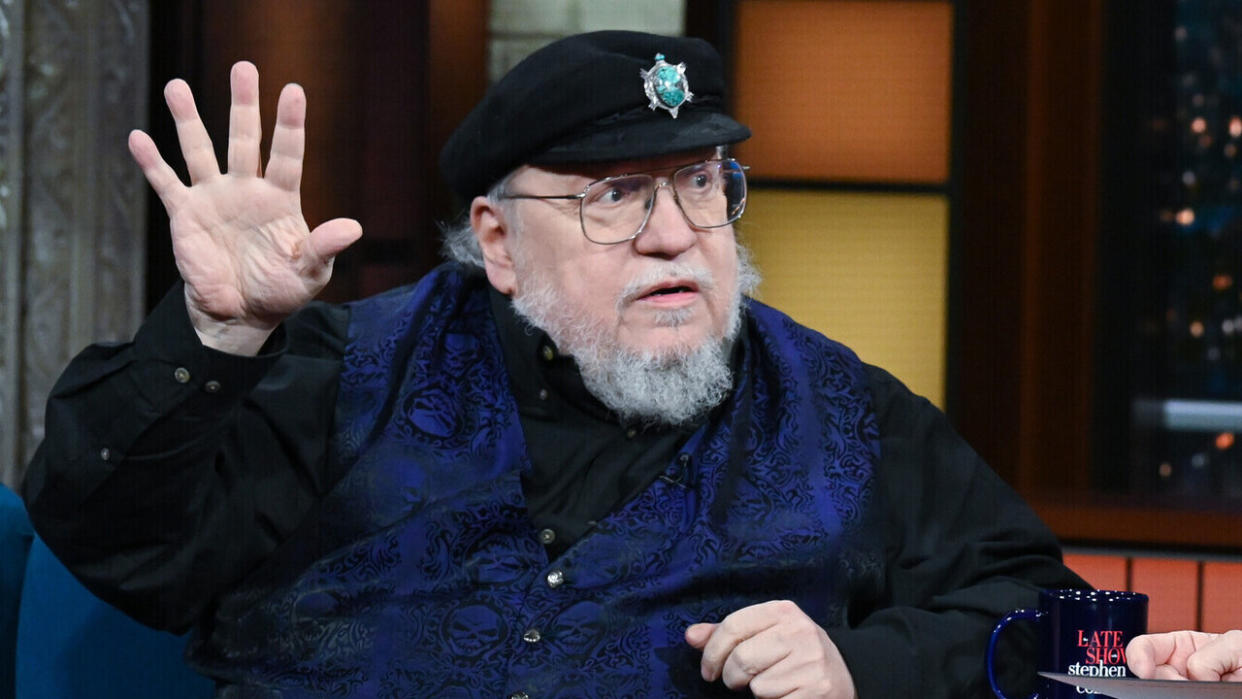George R.R. Martin Passionately Claimed Most Adaptations Don't Work, But I Couldn't Agree More With His One Exception To The Rule

Many of the movies and television shows we love so dearly (as well as tons of the ones we like a whole lot less) are actually based on books, comics, graphic novels and other printed media that came before. One such incredibly popular series was the long-running fantasy hit Game of Thrones, which is, of course, based on the work of author George R.R. Martin. The writer has now made a passionate claim that most book to screen adaptations don’t work, but I couldn’t agree more with his one exception to that rule.
What Did George R.R. Martin Say About Most Adaptations Not Working?
It may have taken well over a decade, but once someone found a way to adapt George R.R. Martin’s A Song of Ice and Fire novels, there was basically no turning back. As we all know, HBO’s Game of Thrones was an impressive mega-hit (despite backlash about the last season and series finale) with long legs. We’re about to go into House of the Dragon Season 2, and several other GOT universe adaptations (including the upcoming A Knight of the Seven Kingdoms: The Hedge Knight, which is about Dunk and Egg) are being worked on, so Martin knows a thing or two about the process.
He recently wrote on his Not a Blog that adaptations almost never work, and said:
No matter how major a writer it is, no matter how great the book, there always seems to be someone on hand who thinks he can do better, eager to take the story and “improve” on it. “The book is the book, the film is the film,” they will tell you, as if they were saying something profound. Then they make the story their own.
He’s not wrong. If you’ve ever been eager to see one of your favorite books turned into a show or movie, you have certainly heard screenwriters/producers say those types of things and then become worried about whether or not they’ll actually be able to nail the adaptation. Martin continued:
They never make it better, though. Nine hundred ninety-nine times out of a thousand, they make it worse.
And, we’ve certainly all been here. We waited and hoped and now the screen version of a novel we hold dear to our hearts has arrived and…WTF did they do to it?!?! But, every now and then the creatives behind an adaptation really do hit it out of the park, and manage to bring the source material to life in a way that satisfies fans old and new, and I really do agree with his assessment that one recent project hits the right note. As Martin said:
I came across one of those instances recently, when I binged the new FX version of SHOGUN.
Ah, yes. Everyone and their great-great-grandmother has been talking about Shōgun, and it’s nearly impossible to deny that the adaptation is a thorough and thrilling retelling of the original story. So, why is this historical drama, which is based on James Clavell’s 1975 novel of the same name, different from so many others?
Why Does George R.R. Martin Think Shōgun Is An Adaptation That Works?
Part of the obvious issue with adaptations is that people will have major expectations, especially for something that was already a massive hit in book form, and it’s impossible to please everyone. But, Shōgun is a recent effort that has pretty much managed to do just that, with even our own Rich Knight finding more to love about Shōgun than not, and the miniseries being popular/well-received enough that two additional seasons are (Surprise!) now in the planning stages. Martin admitted that he was “dubious” when he found out another screen version of Shōgun was on the way, but added:
I am glad they did [make it], though. The new SHOGUN is superb. Better than Chamberlain’s version, you ask? Hmmm, I don’t know. I have not watched the 1980 miniseries since, well, 1980. That one was great too. The fascinating thing is that while the old and new versions have some significant differences — the subtitles that make the Japanese dialogue intelligible to English speaking viewers being the biggest — they are both faithful to the Clavell novel in their own way. I think the author would have been pleased. Both old and new screenwriters did honor to the source material, and gave us terrific adaptations, resisting the impulse to ‘make it their own.’
Therein lies the trick, I suppose. As the writer noted when he spoke about adaptations at an event in 2022, he believes that “legitimate” changes are limited to things like budgetary concerns for productions, and what can logically be created for the screen given the money available. However, other attempts to “make the story their own” count as “illegitimate” updates for him, and, honestly, that seems to be true for many other book lovers who are dying to have novels they love faithfully turned into TV shows and movies.

 Yahoo News
Yahoo News 
